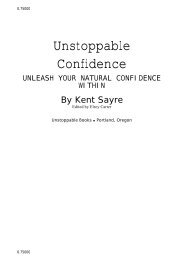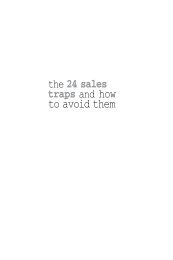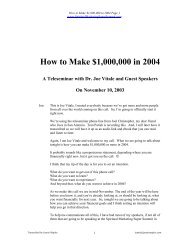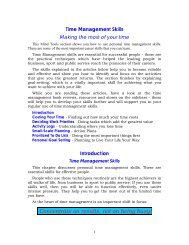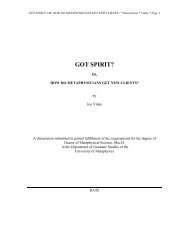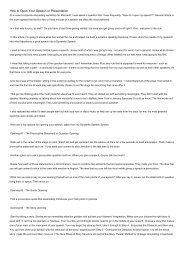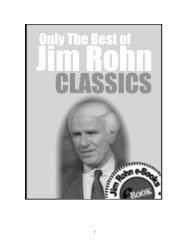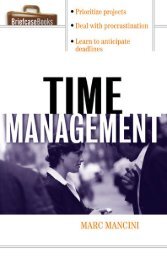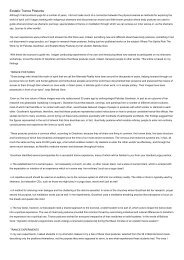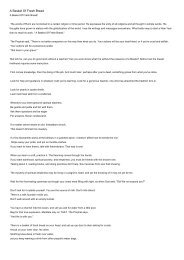Executive Coaching - A Guide For The HR Professional.pdf
Executive Coaching - A Guide For The HR Professional.pdf
Executive Coaching - A Guide For The HR Professional.pdf
You also want an ePaper? Increase the reach of your titles
YUMPU automatically turns print PDFs into web optimized ePapers that Google loves.
serves as the catalyst in helping the client to make it happen. <strong>The</strong><br />
impetus for change must come from the boss during discussions with<br />
the client regarding the client’s job performance and its impact on<br />
business results.<br />
Employee Selection<br />
What Is the Coach’s Role? 101<br />
...............................<br />
Another inappropriate task for a coach is to evaluate the client as<br />
an employee to see whether the client is the right candidate for the<br />
job. Some coaches also do “psychological assessments” of candidates<br />
for jobs, and these assessments may have recommendations in them.<br />
However, asking a coach to determine whether the client is the<br />
right candidate for a job is not a good practice for both legal and<br />
practical reasons.<br />
On the practical side, in a given coaching engagement, if the<br />
client has a sense that the coach is sitting in judgment on career<br />
issues, the coaching relationship is over. <strong>The</strong> bond of trust between<br />
coach and client cannot exist, and the client will, at best, be reluctant<br />
to share information needed for the coaching to be successful.<br />
When to Discontinue <strong>Coaching</strong><br />
<strong>Coaching</strong> assignments don’t always go smoothly. <strong>The</strong>y can hit<br />
snags. When a snag is recognized, the <strong>HR</strong> professional has to get<br />
involved. It is also possible that the coach will not speak up and so<br />
the <strong>HR</strong> professional will have to step in. It is a good idea to have a<br />
meeting with the coach and the client.<br />
Sometimes it’s not just a snag, but a dead end. A coach might<br />
recommend that the coaching process be stopped, temporarily or<br />
permanently. This decision is usually made after a great deal of consideration.<br />
In discussions with the client and the <strong>HR</strong> person, an<br />
agreement might be reached that the client doesn’t have a coaching<br />
problem, doesn’t want to be coached, or that the chemistry just<br />
hasn’t been good. <strong>The</strong>se can be difficult truths that must be faced by<br />
the coach, the client, and the organization. If the coaching engagement<br />
has involved communication among the <strong>HR</strong> professional, the



